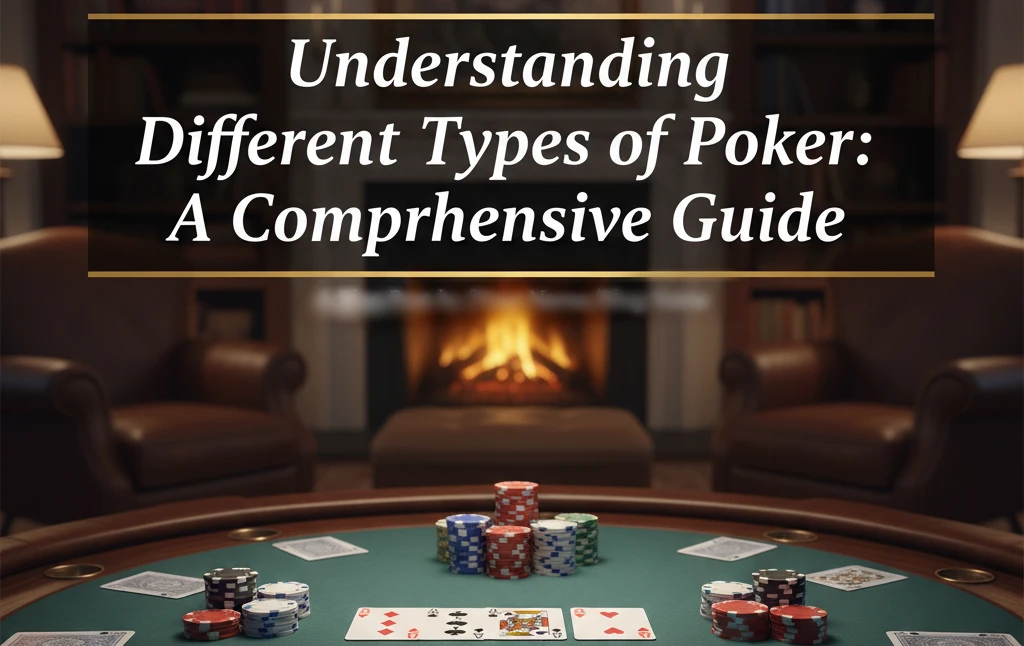Poker represents one of the most popular and diverse card games worldwide, with numerous variations that have evolved over centuries. Each poker variant features unique rules, strategies, and gameplay dynamics that appeal to different player preferences. Understanding these variations helps enthusiasts appreciate the game’s complexity and choose formats that match their playing style.
For those exploring online options, 1xbet provides a wide selection of poker rooms and tournaments accessible to players worldwide.
Texas Hold’em
Texas Hold’em stands as the most widely recognized poker variant globally. Each player receives two private cards (hole cards), while five community cards are dealt face-up on the table in stages. Players construct the best five-card hand using any combination of their hole cards and the community cards.
The game progresses through four betting rounds: pre-flop (after hole cards are dealt), flop (after first three community cards), turn (after fourth community card), and river (after fifth community card). The combination of hidden information from hole cards and shared community cards creates strategic depth, with position, hand reading, and mathematical probability playing crucial roles.
Texas Hold’em gained tremendous popularity through television coverage of major tournaments and online platforms. The game’s relatively simple rules combined with complex strategic possibilities make it accessible to beginners while offering lifetime learning potential for dedicated players.
Omaha Poker
Omaha closely resembles Texas Hold’em but introduces significant strategic differences. Players receive four hole cards instead of two, and must use exactly two hole cards combined with exactly three community cards to form their final hand. This requirement creates more possible hand combinations and typically results in stronger winning hands compared to Hold’em.
Omaha High-Low (Omaha Hi-Lo or Omaha 8-or-Better) adds another dimension by splitting pots between the highest and lowest qualifying hands. To qualify for the low portion, hands must contain five unpaired cards ranked eight or lower. Players can win both halves of the pot (scooping) with hands that qualify as both best high and best low, such as straights and flushes using low cards.
The increased number of hole cards and hand construction rules make Omaha more complex than Hold’em, requiring careful attention to hand possibilities and drawing potential.
Seven-Card Stud
Seven-Card Stud predates community card games as the dominant poker variant in American card rooms. Unlike Hold’em and Omaha, Stud uses no community cards. Each player receives seven cards throughout the hand: three face-down (two initially, one at the end) and four face-up.
The game begins with each player receiving two down cards and one up card. The player showing the lowest up card must initiate action with a forced bring-in bet. Subsequent betting rounds occur after the fourth, fifth, sixth, and seventh cards are dealt. Players construct their best five-card hand from their seven cards.
Seven-Card Stud requires strong memory skills since players must track exposed cards that have been folded to calculate remaining possibilities accurately. The absence of community cards means each player’s hand develops independently, creating different strategic considerations than community card games.
Seven-Card Stud Hi-Lo
This Stud variant splits pots between high and low hands, similar to Omaha Hi-Lo. The same dealing procedure applies, but players compete for both halves of the pot. Low hands must qualify with five unpaired cards eight or lower, and straights and flushes don’t count against low hands.
The split-pot format creates situations where players pursue different goals simultaneously, with some hands capable of winning both halves. Strategic complexity increases as players must evaluate not only their high hand potential but also low hand possibilities and opponents’ likely holdings.
Razz
Razz represents a lowball Stud variant where the objective is making the worst possible hand. The game follows Seven-Card Stud dealing procedures, but hand rankings are inverted. The best possible hand is A-2-3-4-5 (called the wheel or bicycle), with straights and flushes not counting against low hands.
In Razz, exposed pairs hurt hand quality, and players seek unpaired low cards. The player showing the highest up card must bring in the action initially, opposite to standard Stud. Razz requires different strategic thinking than high-hand variants, with players avoiding high cards and pairs while pursuing smooth low combinations.
Five-Card Draw
Five-Card Draw represents one of the oldest and simplest poker variants. Each player receives five cards face-down, followed by a betting round. Players then have the option to discard and replace any number of cards (typically up to three, sometimes four if holding an ace) in the draw phase. A final betting round occurs after the draw.
The game’s simplicity makes it popular for casual home games and an excellent introduction to poker fundamentals. However, the limited information available about opponents’ hands (no exposed cards) and the single draw create different dynamics than games with multiple betting rounds or community cards.
Badugi
Badugi originated in Asia and represents a unique draw poker variant using a completely different hand ranking system. Players receive four cards and aim to make the lowest hand with four cards of different suits and ranks. The best possible hand is A-2-3-4 with each card a different suit.
Hands with pairs or multiple cards of the same suit are penalized. If hands contain pairs or suited cards, only one card from each pair or suit counts, effectively reducing hand size. A four-card badugi beats any three-card hand, which beats any two-card hand.
Badugi features three drawing rounds, allowing players multiple opportunities to improve their hands. The unusual ranking system and Asian origin give Badugi a distinctive character compared to traditional poker variants.
2-7 Triple Draw
2-7 Triple Draw is a lowball variant where players aim to make the worst possible five-card hand. Unlike Razz, straights and flushes count against low hands, and aces are always high. The best possible hand is 2-3-4-5-7 of different suits (the seven-five low).
Players receive five cards and participate in three drawing rounds with betting rounds before each draw and after the final draw. The multiple draws allow for significant hand development and create complex strategic situations regarding which cards to keep or discard.
This variant gained popularity through high-stakes cash games and mixed-game formats, appealing to players seeking challenging strategic depth.
Pineapple and Crazy Pineapple
Pineapple variants modify Texas Hold’em by dealing three hole cards instead of two. In standard Pineapple, players discard one card before the flop. In Crazy Pineapple, players keep all three cards until after the flop betting round, then discard one before the turn.
Lazy Pineapple (also called Tahoe) allows players to keep all three cards throughout the hand but only use two for their final hand. These variations increase action and hand strength compared to standard Hold’em while maintaining familiar community card structure.
HORSE and Mixed Games
HORSE represents a mixed-game format rotating through five variants: Hold’em, Omaha Hi-Lo, Razz, Seven-Card Stud, and Seven-Card Stud Hi-Lo (Eight-or-Better). Games rotate after a set number of hands or time period, testing players’ versatility across different poker disciplines.
Other mixed formats include 8-Game (adding 2-7 Triple Draw, Limit Hold’em, and No-Limit Hold’em to HORSE rotation) and 10-Game (further adding Pot-Limit Omaha and Badugi). Mixed games require broad poker knowledge and adaptability, making them popular in high-stakes settings and major tournament series.
Chinese Poker
Chinese Poker differs dramatically from betting-based variants. Players arrange thirteen cards into three hands: a five-card back hand, a five-card middle hand, and a three-card front hand. The back hand must be strongest, middle hand second-strongest, and front hand weakest.
Players score points by comparing corresponding hands against opponents. Standard scoring awards one point per hand won, with bonuses for particularly strong hands (royalties). Open-Face Chinese Poker, a popular variant, features sequential card placement with incomplete information, adding strategic complexity.
Short Deck Poker
Short Deck (also called Six-Plus Hold’em) uses a reduced deck with all cards below six removed. This modification changes hand probabilities significantly, with flushes ranking higher than full houses due to reduced suit availability. Straights become more common, and aces can make low straights (A-6-7-8-9).
The compressed hand ranges and altered probabilities create more action and different strategic considerations than standard Hold’em, appealing to players seeking high-variance excitement.
Understanding Poker Diversity
The vast array of poker variants demonstrates the game’s adaptability and enduring appeal. Each variation emphasizes different skills: Hold’em rewards position and range reading, Stud requires memory and card tracking, draw games test decision-making with incomplete information, and mixed formats demand versatility.
Modern players can easily explore these variants using mobile solutions like the 1xbet Somalia apk, which provides secure access to live poker tables, tournaments, and fast deposits from any Android device.
Whether preferring the strategic depth of Omaha, the memory challenges of Stud, the unique ranking systems of Badugi and 2-7, or the accessibility of Hold’em, poker offers variants matching every preference. Understanding these different forms enriches appreciation for poker’s complexity and the diverse skills required to master its many incarnations.
Disclaimer:
blogearns.com is not an online gambling operator or a gambling site of any kind. We are simply here to provide information about sports betting for entertainment purposes only.
Although we talk about betting online on our website pages, it is the responsibility of all visitors to this website to check current local laws in their own area or country before doing any gambling online. It is your responsibility to know and follow your local laws in place.
Although we try our best to provide accurate information on blogearns.com, we cannot be held responsible for any inaccurate or incorrect information that is posted on our website pages. Please contact us if you notice any information that is inaccurate or incorrect on blogearns.com.
If you visit any website we link to from blogearns.com you have left our site. By visiting our website you confirm that you understand that it is possible to lose some or all monies used when betting on sports or doing any gambling. You cannot hold blogearns.com responsible for any such losses.
Some links on this website may be affiliate or referral links and we receive compensation from them. Some of these include but are not limited to FanDuel and FantasyDraft.
Online gambling can have potential risks and may not be legal in all jurisdictions. Please gamble responsibly and within your means.
Our site is here to provide entertainment and should be viewed as that and nothing more. Enjoy the site!





